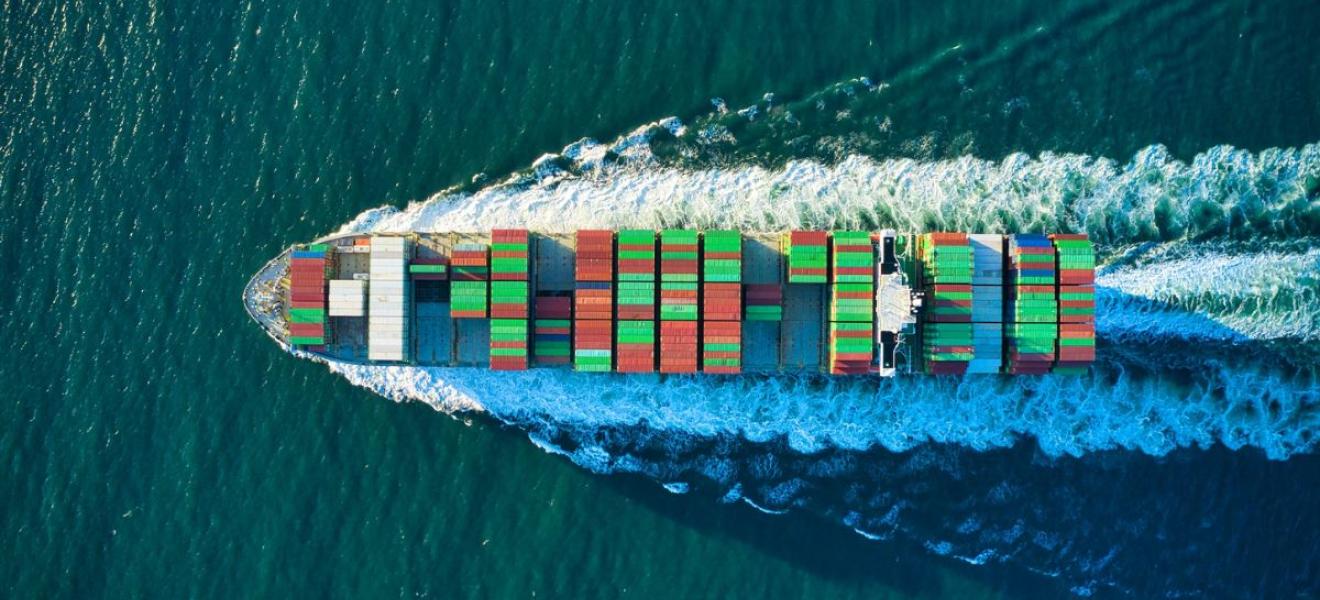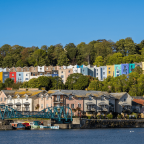
South West’s only freeport a step closer to completion
The South West’s only proposed freeport is progressing towards completion, as the government has given its business case full approval.
This means the Plymouth & South Devon Freeport will get a seed grant of £25 million and also be able to access tens of millions in business rates and investment.
The Plymouth and South Devon Freeport will, according to figures cited by Plymouth City Council, create 3,584 jobs, and generate £4m a year in private investment in research and development.
The freeport is one of only eight proposed sites in the UK, and the only one in the South West region. Other areas include Solent and Teesside, the latter of which already boasts the UK largest Freeport, TeesWorks.
The freeport is hoped to create opportunities around job creation, trade and investment, local regeneration and job creation.
What are freeports?
Freeports are areas where normal tax and customs rules do not apply. Imports can enter a freeport without paying tariffs, and with simplified customs procedures.
These arrangements are designed to encourage businesses that import, process and then re-export goods, as the goods can be re-exported without UK duties being paid.
Supporters say that freeports can boost investment in areas where they are located, though critics point to their potential for money laundering and tax evasion.
A “unique opportunity”
A snapshot report released by freeport partners earlier this year highlights the “unique opportunity” afforded by the freeport “to drive growth across, not only our local economy, but the whole region”.
The report outlines a number of potential benefits for businesses in the freeport zone, including enhanced capital allowances, business rates relief and suspended VAT on goods entering the freeport.
“Our Freeport provides a unique opportunity to drive growth across, not only our local economy, but the whole region”, the report states, highlighting the project’s impact on the areas of “physical regeneration”, “economic regeneration” and “social regeneration”.
“The Freeport can act as a catalyst for investment”, the report continues, “that provides wider benefits for supply chain partners and ancillary services.
The Prime Minister, Rishi Sunak, announced the freeport locations when he was chancellor earlier this year. Former PM Boris Johnson had described freeports as an “excellent way to boost businesses and trade in regions that Westminster has neglected to pay attention to for far too long”.
Councillor Nick Kelly, Leader of Plymouth City Council, has championed the freeport as “a brilliant catalyst to build back better and drive economic growth.”
Freeports in a post-Brexit UK
“The EU is the only place where these [freeports] really don’t exist…” Rishi Sunak, 2019
Contrary to what is often claimed, freeports are allowed in the European Union, and as of July 2021 there were 72 free zones in 20 member states according to the policy think tank Institute for Government.
Incentives such as tax breaks for businesses within the freeport zones, however, are limited by EU state aid rules, which prohibit governments from providing support to certain companies over their competitors. EU freeports come under greater restrictions, therefore, than similar zones elsewhere in the world.
Johnny Mercer, MP for Plymouth Moor View, has described the Plymouth and South Devon Freeport as “one of the first ever ‘Free-ports’ [sic] in the United Kingdom”.
In fact, the UK set up seven freeports after 1984 but they were phased out under David Cameron in 2012. Sites included Liverpool, Southampton, Port of Tilbury, Port of Sheerness, as well as Prestwick Airport.
A report published by The UK in a Changing Europe states: “The UK had freeports until 2012 when the relevant legislation lapsed. The reasons for this lapse are not clear but there was a suggestion that freeports were of limited use, that they made no difference to Government revenue or customs reliefs, and that they introduced unnecessary complexities regarding customs.”
The UK now offers more flexibility in tax breaks and subsidies to companies based at freeports, according to the BBC, which also says that those subsidies no longer require prior consent from the European Commission.
However, UK freeports will still need subsidies to be justified, as per the terms of the Trade and Cooperation Agreement signed in 2020, to prevent the European Commission challenging this in UK courts.
Economic opportunities
The economic benefit that the Plymouth and South Devon Freeport will bring to the South West is unclear.
“The value of the concessions on customs duties is clearly related to the height of the duties that would otherwise be paid,” Peter Holmes, fellow at the UKTPO, told the International Trade Committee in 2021. Under current arrangements, the UK already benefits from zero tariffs on more than half of its imports, Holmes pointed out. “The value of the tariff concession will be very low, and would do little to encourage economic activity within the freeport”.
Steve Barclay MP, who championed the rollout of freeports in his role as Chief Secretary to the Treasury, told the committee that “it is very difficult to model exactly what the impact on jobs, inward investment, and innovation will be”, and that “economic benefits will vary between sites and sectors”.
Ongoing costs associated with freeports are not negligible. A paper published by the UK Trade Policy Observatory reports that “final evaluation of the enterprise zones found that the public sector cost per additional job created in the zone amounted to £17,000 per job in 1994-95 prices” - around £32,000 today.
A report by the Institute of Export and International Trade states that “more than 40% of the net additional 58,000 jobs created in the Enterprise Zones of the 1980s were displaced from elsewhere.”
Concerns around tax transparency
The promise of low tax, pro-business zones are a powerful rhetorical punch for a Government committed to “levelling up” and deregulation.
However, questions remain around the wider economic benefit of freeports and the potential for tax avoidance and money laundering.
A 2018 study by the European Parliamentary Research Service states: “freeports are conducive to secrecy. With their preferential treatment, they resemble offshore financial centres, offering both high security and discretion and allowing transactions to be made without attracting the attention of regulators or direct tax authorities.”
Paul Monaghan, chief executive of the Fair Tax Mark scheme, told the Guardian last year: “These ‘sleaze ports’ are very much mini-tax havens domiciled within the UK. It’s going to leak out into the wider economy – it will result in a massively reduced contribution from business to the Treasury. Businesses which are rooted in communities wish to stay and play a part in society and pay fair tax – why should they be undercut by hot capital and flighty businesses that can exploit these zones?”
The government is touting the benefits of freeports, saying they will help boost the maritime sector in Plymouth and strengthen maritime clusters, while bringing thousands of skilled jobs and millions of pounds of investment into the region.
Will the Plymouth freeport benefit the South West?
The looseness with the truth that inflates the Westminster discourse around freeports suggests strongly that these economic zones are as much about post-Brexit boosterism as they are about rational economic strategy.
However, that is not to say that a freeport in the South West will not bring opportunities for the region.
A recent report released by Plymouth Council provides hope that the focus of the freeport - as far as local stakeholders are concerned - will be on sustainability, regeneration and skills.
“There are a range of opportunities”, the report states, “...to put our area on the map as a science superpower, for example in autonomy and renewables, contributing to key national net zero agendas including short sea shipping within a smart port, autonomous and clean propulsion setting.”
Plymouth is a key hub in the region for manufacturing and engineering, including in the green and blue tech space. Greater incentives for such businesses to grow can only be a good thing.
Councillor Nick Kelly, Leader of Plymouth City Council, has described the freeport as “a chance to showcase our strengths in the marine and defence sectors to the rest of the country, the world, and to support the growing space sector.”
“Additionally”, Mr Kelly continued, “the freeport is also about the long term prospects for up-skilling our future workers, making sure there are great job prospects for tomorrow’s workforce.”
In a political climate where any discourse around industrial strategy is filtered through an increasingly kaleidoscopic lens, the more the role of the freeport is kept in the hands of stakeholders in the region, and out of Westminster, the better.







